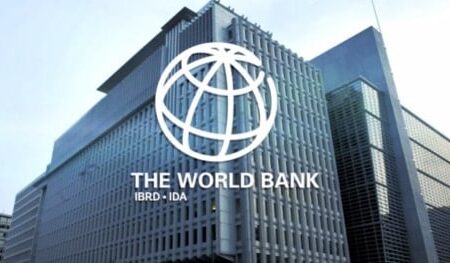The World Bank seeks to expand its lending capacity to address climate change and other global crises. It will negotiate with shareholders ahead of April meetings over proposals that include a capital increase and new lending tools, according to an ‘evolution road map’ seen by Reuters.
The document proposes shifting the Bank’s mission and resources away from the country- and project-specific lending model used since its creation after World War 2.
The Bank aims to have specific proposals ready for approval by the joint World Bank and International Monetary Fund (IMF) Development Committee in October.
The World Bank Group (WBG) will not accede to demands from some non-profit organisations to abandon its top-tier credit rating to boost lending: ‘Management will explore all options that increase the capacity of the WBG while maintaining the AAA rating of the WBG entities.’
The document cautions that a build-up of proposed lending may require a capital increase to boost the capacity of the Bank’s middle-income lending arm, the International Bank for Reconstruction and Development (IBRD).
The IBRD’s $13bn capital increase in 2018 ‘was designed to be prepared for one mid-sized crisis a decade, and not multiple, overlapping crises’ including Covid-19, the Ukraine war and the effects of climate change.
Another option is for shareholder countries to increase periodic contributions to the International Development Association, a fund for the poorest countries.
A further option is to create a new concessional lending trust fund for middle-income countries focusing on global public goods, being similarly structured to the IDA, with regular funding replenishments. These changes will require additional staff and budget resources, which have declined by 3% in real terms over the past 15 years.
Environmental group Friends of the Earth said, however, the proposal did not go far enough, and the Bank’s shareholders needed to ensure the lender was not ‘part of the problem’.
‘A true evolutionary road map must commit to ending financing for fossil fuels, industrial animal agriculture, petrochemical infrastructure, corporate-friendly false solutions and harmful activities in biodiverse areas,’ said Friends of the Earth.

